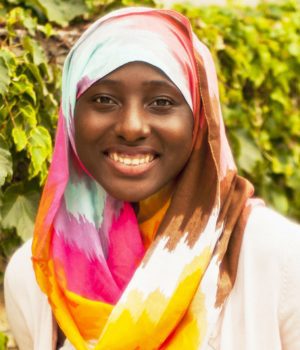 Every time a Muslim leaves their home, they walk with a certain fear that today something will happen to them. Even on the UW-Madison campus, many Muslims feel the tension that has spiked since the results of the presidential election. There have been an uptick in harassment all across the nation, from Muslims being spit on, to many hijabis having their hijabs ripped from their heads.
Every time a Muslim leaves their home, they walk with a certain fear that today something will happen to them. Even on the UW-Madison campus, many Muslims feel the tension that has spiked since the results of the presidential election. There have been an uptick in harassment all across the nation, from Muslims being spit on, to many hijabis having their hijabs ripped from their heads.
It is important to keep in mind that there is a very negative image of Muslims in the media, which has done nothing to help the hatred that many Muslims feel everyday. Most of the hate crimes come from people who are uneducated about Islam, and instead draw their opinions from incomplete images painted by the media.
It’s Islam Appreciation Week on the UW campus, hosted by the Muslim Students Association (MSA). As we spend the week in a series of awareness and engagement events, here are a few “facts” about Islam that pop up in conversations (and internet comment sections) that aren’t exactly factual.
- Muslims are not peaceful. Actually, Islam is a religion of peace and love. In fact, love is one of the most used words in the Holy Qu’ran. Also, 5 out of the past 12 Nobel Peace Prize winners have been Muslims.
- All terrorists are Muslim. According to an FBI study 94% of terrorist attacks carried out in the United States from 1980 to 2005 have been by non-Muslims. There are no justifiable reasons to blame an entire religion for terrorist acts. If the entire Christian religion is not blamed for the hate crimes committed by members of the Ku Klux Klan (KKK), why is it acceptable to blame Muslims for every terrorist act?
- Muslim women have no rights. Women have rights to do a lot of things including make and keep their own money, gain an education, and divorce. Islam holds women in high regard; it is a religion that protects women. According to the Qu’ran, in a truly Islamic society, women are at the forefront of labor. Spiritually, there is no superiority between men and women. Actually, women have always had these rights in Islam, as opposed to many other western women, who were historically treated as property until the 19th century.
- Muslim women are uneducated and oppressed. The world’s oldest university, the University of Qarawiyyin was founded in 859 by a Muslim woman, Fatima Al Fihri. As for Muslim women being oppressed by the hijab, many women choose to wear a hijab because of their strong faith, not in spite of it or because her father made her wear it. A lot of Hijabis see it as a confidence boost, including myself.
- Prophet Muhammad (SWS) founded Islam. The basic message of Islam (the submission to God) was also taught by Jesus and Moses and many other prophets. According to Islam, Prophet Muhammad was simply the last messenger chosen by God. In fact, prophet Ibrahim (Abraham) is seen as the “father” of the three Abrahamic religions: Islam, Judaism, and Christianity.
- Sharia Law is archaic and cruel. Sharia Law outlines things such as how to settle finances after divorce, the legality of adoption, social etiquette, economics, and other such topics. It is a guideline on how Muslims should legally settle disputes.
- All Arabs are Muslims, All Muslims are Arab. The Asia-Pacific region has the most Muslims in the world. Also, most Arab-Americans are Christian not Muslim.
- Muslims hate people of other religions. Muslims are taught to respect and be kind to everyone, even if their religious beliefs differ.
- Islam is incompatible with American values. The most essential principles of Islam is the establishment of peace and justice in the land.
- Muslims don’t believe in or care about Jesus Christ. Jesus is one of the most important figures in Islam. He is considered to be one of the greatest Prophets and Messengers of God. In fact, Muslims believe in all of the prophets in both Judaism and Christianity. The differences stem from who we believe the last prophet is.
MSA wants to immerse the university campus with engaging events activities that will help build a bridge between Muslims and non-Muslims. MSA vice president Isha Hammad, junior at UW-Madison, says that she hopes “people feel comfortable reaching out. If they have questions, reach out the MSA. Don’t feel worried about being offensive or asking ignorant questions, we are very welcoming.”
Three events still remain during Islam Appreciation Week, including a panel discussion this evening on the centrality of social justice within the Shi’a Islamic tradition, particularly as it relates to contemporary social movements such as Black Lives Matter, the fight for water at Standing Rock, and resistance post-Trump election.
MSA encourages any UW-madison student, staff, or faculty who doesn’t know much about Islam to attend these informational events to meet the Muslims on campus.




























